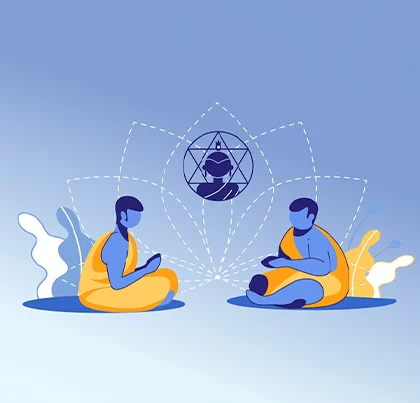A Changing Loved One

A loved one suffering from an addiction can create an atmosphere that weighs down an entire household. Addiction is a family disease, and all family members share part of the burden. Addiction can drastically change people, including their interests, attitude, and even overall personality, affecting everything down to their sleep cycle. Noticing these changes may be difficult at first. Still, when suspecting someone of having an addiction to any kind of substance, there are a few things to consider and practice to get someone the help that they need. It’s time to help and support your loved one in a way that may be necessary for the household.
Patience and Forgiveness
It will be tempting to act immediately upon suspicion of addiction to get help as soon as possible. While waiting to help someone undeniably carries significant risks, there is still a need to resist feelings of overwhelming urgency. Loved ones need to know that addiction can fundamentally change a personality, practice patience, and offer forgiveness. The addicted individual may act out of character or say things that they may not truly mean. For an addict, being confronted about their addiction can feel like a personal attack. While monitoring an addicted individual’s actions, it is also vital to forgive the person for the changes that their body is undergoing. This helps to establish your presence as a caretaker and loved one, and not another antagonist to the addiction. Patience itself does not necessarily mean you should do nothing. Instead, think of patience as being supportive and waiting for the proper time and place.
Time and Place
Time and place are critical in creating a divide between seeming like an antagonist and seeming like a caretaker. It is already difficult enough to get an addicted individual to want to seek help for themselves. By establishing yourself as an ally, you can encourage that person to take the first step for themselves. The “addiction talk” is a challenging conversation to have. Try to create a proper, comfortable environment when your loved one is feeling receptive to help. This can be the crucial difference in becoming a caretaker or painting yourself as yet another obstacle, despite your good intentions.
Self-Education and Understanding
This patience also provides time for one to educate themselves from the outside. The more you know about addiction, the more quickly you’ll be able to help your loved one recover. Education can help you make a more persuasive argument in addressing your loved one’s addiction. You may be able to offer insight and facts that the person may not realize. On the other hand, you may even discover that a person is not an addict. In that case, you’ll be able to move on to find out what another possible root of their recent changes may be. Education and understanding are cornerstones in creating a meaningful conversation about addiction. By educating yourself, you can tackle the difficulties that are affecting both the individual and the household.
Practice
Having educated yourself on symptoms, and how they relate to your loved one, practice the upcoming conversation. Make intentions deliberate and explicit, as ambiguity can compromise the whole discussion. Rehearse what will be said, and the desired tone when saying them. Clear questions get clear answers and make a conversation more meaningful. A fruitful dialogue will help find the right kind of treatment for an addicted person.
Be Receptive
All of these things help to open a real dialogue about the problems at hand so you can find a good solution. Ultimately, you want an addicted person to want the help themselves. But the operative word here is “dialogue.” All the research in the world may be for naught if coming at your family member with a lengthy monologue. An addicted, or even potentially addicted person, still needs to be treated with respect and understanding. People who do not feel like they are being heard are unlikely to change their practices. They’re less likely to compromise or acknowledge your helpful intent. Be ready to listen to their answers, their feelings, and their troubles. This part may be difficult, as an addicted individual may be experiencing misplaced or seemingly sourceless anger. Still, it is essential to hear them and take them seriously all the same. Open that dialogue. Once established as an ally in the struggle against addiction, continue that dialogue throughout the entire process. Someone taking the step to seek help for their addiction is a fantastic first step. Still, it does not mean that there is nothing more to be done in the home. A stable, supportive environment through the whole process increases the chance that your loved one will become sober and, more importantly, stay sober for years to come.
For those looking for more information on how to help their loved one, the services available for the addiction recovery process, or to schedule an intake for a person, contact Brighton Recovery Services at 1-844-479-7035 today. Their professional staff is ready to answer any questions. This program includes specialists in the LGBTQ+ community available to individualize any treatment plans to best accommodate an individual through their own personal journey to a sober life.
It’s your life, your treatment, and your recovery.



